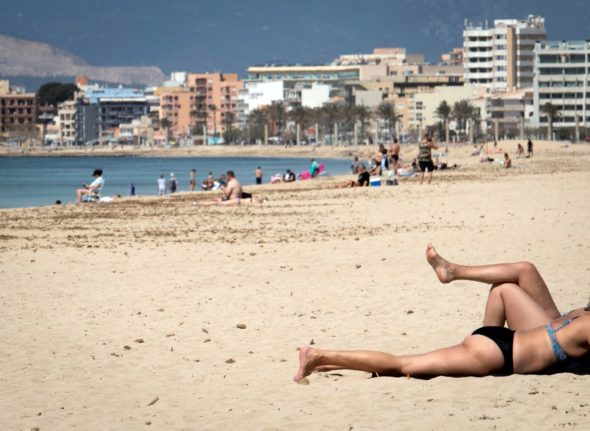The Spanish government have released more information about the 100 percent discounted trail travel it will be offering on selected lines from September.
Announced by Spanish Prime Minister Pedro Sánchez during the first day of the ‘State of the Nation’ debate in the Spanish Congress last month, the multi-journey ticket scheme will be for some trains operated by the state owned train network, RENFE, including Cercanías, Rodalies (Catalonia), and Media Distancia (local and medium-distance journeys).
The headline grabbing 100 percent discount followed news that the government had originally committed to a 50 percent reduction, and will cost the public coffers a reported €200 million. Spain’s Ministry of Transport estimate that the scheme will benefit as many as 75 million journeys and attract between 15 and 20 percent more passengers than usual for the September-December period.
Fortunately, it was also announced last week that there would be no limits on residency or nationality to qualify for the free tickets. Tourists from all over the world – EU member state and third-country nationals, so including Brits and Americans – will be able to benefit from free train travel.
READ MORE: TRAVEL: Tourists in Spain will also be eligible for free train tickets
But there are some conditions. We’ve outlined them below.
Which trains are free?
Unfortunately, the Spanish government has not given everyone in Spain free train travel on every route and on every type of train.
There are rules.
Simply put, local and commuter trains will be free. Cercanías, Rodalies (Catalonia), and Media Distancia (local and medium-distance journeys) will be 100 percent free of charge if redeemed with a multi-journey travel pass that uses at least four journeys per month.
The policy is aimed at encouraging the use of trains as opposed to other fossil fuel intensive forms of transport, and it’s valid for journeys up to 300km.
That in mind, trips on long-distance or high-speed trains, such as AVE and Alvia, are not included in the plan.
Neither will the routes in Avlo, the low-cost AVE option established in 2021, nor the medium and high-speed Avants.
Avlo and Avants will instead have a 50 percent discount on the original price, as outlined by the government in June.
When are the free journeys?
This eye-catching travel discount will be available from September 1st to December 31st 2022, during which multi-journey train tickets on the trains outlined below will be free.
When can I get tickets?
From Monday 8th August commuters can register on the Renfe website to purchase the discounted travel cards, which will be marketed from August 24th and valid for the entire duration of the scheme until December 31st 2022.
“The idea is for users to register in advance on the Renfe website to be able to start buying tickets online from August 24th, 2022,” Minister of Transport, Mobility and Urban Agenda Raquel Sánchez explained in the Spanish press.
The Spanish government has suggested that Renfe plans to hire 1,000 people to help implement the registration and implementation of the process, and to deal with possible increased frequency of journeys to keep up with demand.
READ ALSO: How much can you save on public transport in Spain with the new state discount?
Deposits
If you are wanting to take advantage of the offer on Cercanías or Media distancia services, note that you will have to pay a deposit of €10 or 20 and travel a minimum of four times per month.
To get the deposit back at the end of the year, you must have made at least 16 journeys – four per month during the scheme. Refunds will be made to the card you purchased the tickets with, or at your local station if you paid in cash.



 Please whitelist us to continue reading.
Please whitelist us to continue reading.
Member comments